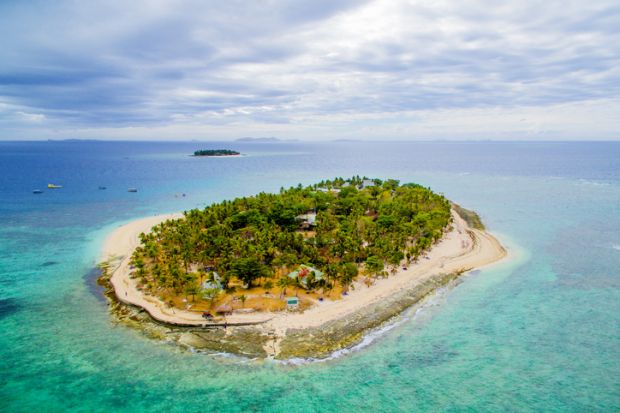The leadership crisis at the University of the South Pacific (USP) appears unresolved, despite the governing council’s decision to grant ousted vice-chancellor Pal Ahluwalia a fresh contract.
The council has authorised Professor Ahluwalia to run the institution from the Samoa campus for three years, with an optional two-year extension.
Professor Ahluwalia was deported in February from Fiji, where USP is headquartered, over unspecified immigration violations. His sudden expulsion, which followed two years of recriminations triggered by his allegations of misconduct by university leaders, occurred amid wider tensions between Fiji and smaller Pacific countries that co-own the institution.
Pro chancellor Winston Thompson, a Fijian, said Professor Ahluwalia’s ejection had terminated his appointment because his contract required him to have a Fijian work permit. The council disputed this, saying it had not dismissed the vice-chancellor.
A subcommittee was formed to investigate whether Professor Ahluwalia remained legally employed, a new contract could be issued and he could be based outside Fiji. Those questions were resolved in the affirmative, with the council announcing on 3 June that deputy pro chancellor Pat Walsh would “lead the process of formalising the new contract”.
The statement says Professor Ahluwalia will report to Professor Walsh, a New Zealander, pending further changes to the USP council. The reinstated vice-chancellor will be subject to annual performance reviews, and his location outside Fiji will be “monitored for feasibility and practicality”, with a formal review within six months.
But Fijian attorney general Aiyaz Sayed-Khaiyum said Professor Ahluwalia’s reappointment was “illegal” because due process had not been followed. “The regulations and the charter…say that there is a particular process through which you appoint the vice-chancellor,” Mr Sayed-Khaiyum told parliament on 4 June.
He said the council’s vote on its resolution had been “close”, with six of 14 attendees abstaining. This reflected council members’ awareness that the proposal was “not necessarily correct because you never appoint a vice-chancellor simply through a council resolution”.
The USP staff association and union refuted these claims, saying the charter did not even mention vice-chancellorial appointment processes. In a 7 June statement, the two organisations said Fiji had the “highest number of representatives on the council” and had been given “ample opportunity” to “share its views under the democratic process of the council”.
Having failed to get their way, Fijian members were now calling the council’s decision illegal. “No individual country or person has the authority to appoint or remove the vice-chancellor,” the statement says. “Their concern is less about the students and good governance and more about protecting their loyal supporters.”
Professor Ahluwalia, who has spent almost four months in Nauru, said he was waiting for the council to issue his new contract. “I expect that to happen shortly,” he told Times Higher Education. “I just want to get on with running the university. This has been a complete distraction for two years.”
He said his time in Nauru had given him a new perspective on the “regional” campuses, and being based outside Fiji would be an advantage. “The university in many places is in urgent need of building repairs, of deferred maintenance. It’s understaffed in the region. I’ve got to fix this…to empower the region to get quality education for their citizens.”
USP’s troubles have been exacerbated by a Covid outbreak that struck Fiji in April. The country’s three campuses are closed with lessons conducted remotely.




